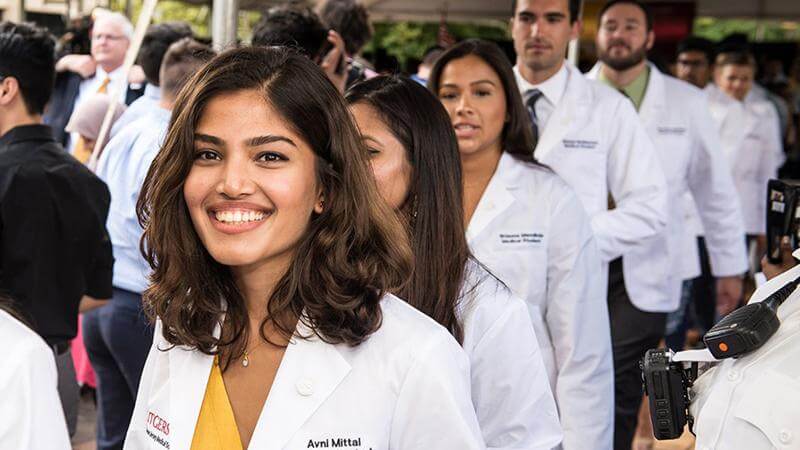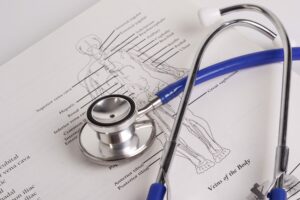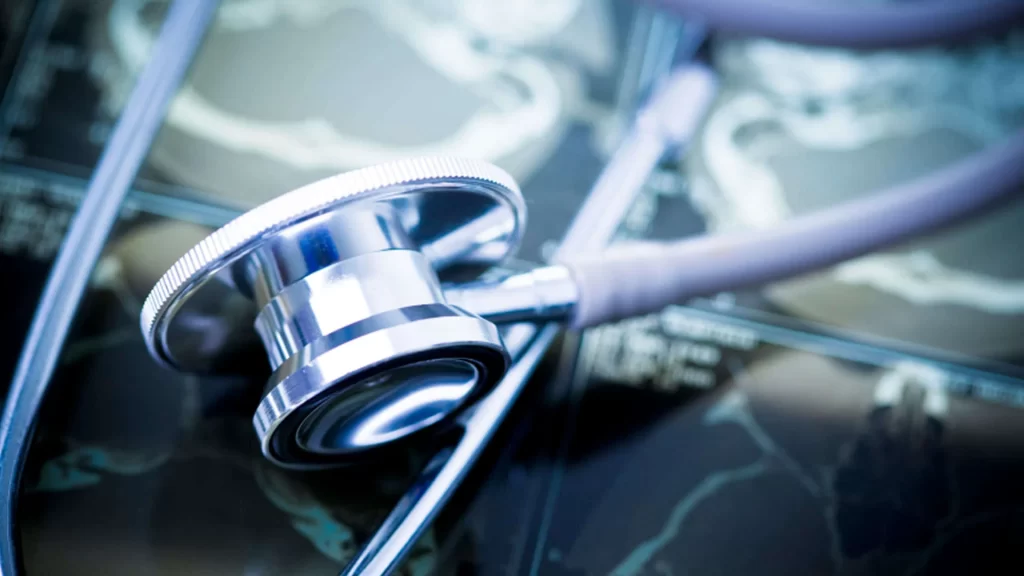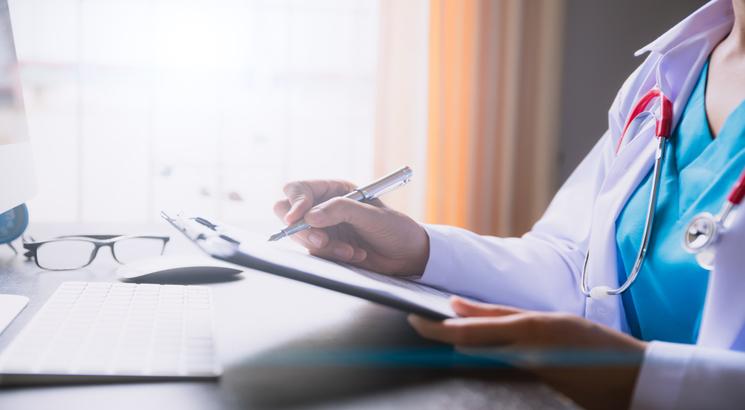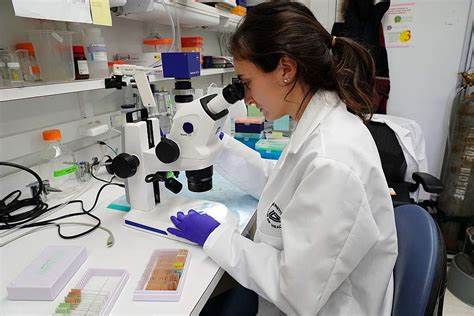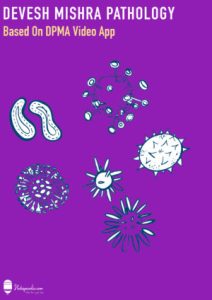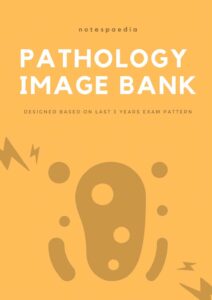Medical graduates who want to go on to higher education need to know everything they need to know about the NEET PG entrance exam. They will have an easier time navigating the syllabus and passing the entrance exam in time to be accepted into the PG course as a result.
The NEET PG syllabus consists of three sections that are divided into various sub-sections. The Graduate Medical Education Regulations of the Medical Council of India drafted these sections. Prior to taking the exam, candidates must review the MCI-prescribed syllabus because the National Board of Examination does not offer a comprehensive syllabus for this.
The NEET PG exam pattern and subject-specific weighting The NEET PG exam pattern has 200 multiple-choice questions. Each correct response receives four points, and each incorrect response receives one point. The weighting of questions in each subject helps students concentrate on the appropriate topics.
Important / High Yield topics for NEET PG
The syllabus for the NEET PG contains the following list of high yield subjects and topics
ANATOMY: High Yield topics for NEET PG
• Cranial Nerves And Nuclei, esp. Optic nerve pathway- Most important for INICET
• Brachial Plexus: Branches and Palsies • Root Values And Dermatomes of UL & LL
• Arteries and branches: Subclavian artery, Axillary artery, Internal iliac
• Nerve Supply of Perineum, Ear, Eye
• Relations of Lesser Sac, Parotid gland
• Peritoneal anatomy
Embryology:
• Derivatives Of Dierent Germ Layers, particularly Neural Crest
• Branchial Arch, CleG Derivatives
• Spermato/Oogenesis, Mitosis, Meiosis
Osteology:
• Types Of Joints With Examples
• Ossification Centers, particularly ones present at birth
• Knee Join Ligaments; learn with orthopedics (injuries)
Neuroanatomy:
• Cavernous Sinus Boundaries/Structures Passing through it, Tributaries
• Blood Supply
• Brainstem Sections
• Ventricle Boundaries Perineum:
• Urethra (Study with Urethral trauma)
• Rectum Anal Canal anatomy
• Spermatic Cord contents
• Reproductive System derivatives (with embryology) Histology:
• List Of Epithelium Lining Of Various Regions Thorax:
• Heart Arterial anatomy • Diaphragm with embryology
• Broncho vascular Segments of lung
• Lung hilum
Best notes to refer: Elite Series Anatomy
Other notes: Egurukul Notes by Ashwani Kumar
BIOCHEMISTRY: High Yield topics for NEET PG
Most important: Cycles
Multiple revisions must be given; to be studied with pediatrics inborn errors of metabolism; understand the step of defect of various disorders with absent enzyme and resultant substrate accumulation resulting in disease
Metabolism:
• Glycolysis • Gluconeogenesis • Krebs cycle • ETC • Glycogen Metabolism • Fatty acid synthesis and Oxidation • Purine and pyrimidine metabolism • Lipoproteins • Carbohydrate isomerism • Energetics of all pathways • GLUTS • Ubiquitine proteasome pathway • Polarity of amino acids • 21st amino acid Genetics: To be done with Pathology and genetic disorders of Pediatrics • Karyotyping • PCR and types, esp. RT-PCR • FISH • Microarray, CGH • Epigenetics • Flow cytometry
Vitamins and essential fatty acids: Function, Deficiency Protein Structure, Collagen Structure DNA replication, transcription, translation
Enzymes: Classification, Kinetics, Isozymes
PHYSIOLOGY: High Yield topics for NEET PG
General Physiology – Body fluid compartments, cell membrane composition, transport processes
Nerve Muscle – Classification of nerve fibers, injury to nerve fibers, sarcomere, changes during contraction, energy systems in muscle
CVS – conducting system, cardiac cycle (events, JVP, PV loops), ECG, Cardiac output, blood pressure (Measurement, regulation including Baroreceptors), regional circulations (esp coronary, capillary), cardiorespiratory changes in exercise
Respiratory system – Mechanics of breathing (surfactant, compliance, lung volumes & capacities, dead space), V/Q ratio, Gas transport (oxygen), Regulation of breathing (respiratory center, chemoreceptors), Hypoxia.
Kidney – JG apparatus, GFR (Starling’s forces), tubular functions , concentrated urine formation, micturition reflex, types of bladder, Acid-base physiology (buffer systems in the body)
GIT – Structure (ENS, BER, reflexes), motility, secretions (saliva, gastric juice, pancreatic juice, bile), GI hormones
Endocrine and reproduction – Pituitary, thyroid, adrenal cortex, pancreas (hormones and their disorders); Estrogen, testosterone, ovulation
CNS – Introduction (synapse, NTs) Sensory system (receptors, ascending tracts, pain) Motor system (descending tracts, cerebellum , basal ganglia, LMN, muscle spindle), higher functions (hypothalamus, sleep & EEG, hemispheres, learning and memory)
Special senses – Visual pathway, visual processes, organ of corti.
Environmental Physiology – Temperature (exposure to heat and cold), high and low barometric pressures, energy balance.
Best notes to refer: Dr Naveen Porwal
Other notes: Elite Series
MICROBIOLOGY: High Yield topics for NEET PG
Bacteriology:
• Strep/Staph Classification
• Staph Toxins
• Legionella: Case scenario
• Typhoid toxins
• E.coli, Salmonella , Cholera, Pseudomonas : Lab tests, toxins
• Clostridium: Toxins
• Tuberculosis: Lab Ix most important
• Rickettsia, Syphilis, Leprosy
• Leptospira,Brucella: Case based Qs
Parasitology:
• Malaria: Image based Qs, stages
• Amoebiasis, Giardiasis, Nematodes/Trematodes Transmission And Host
• Toxoplasmosis
• Cysticercosis-Esp. NCC stages
• Haemoflagellates
• Coccidian Parasites
• Cestodes
Virology:
• Classification of viruses
• Influenza: ShiG vs DriG
• Hepatitis: Types, Hep B serology tests most important
• HIV: Opportunistic, AIDS-deterministic infections, Mx
• Herpes Group : Types and infections
• General Virology
• Recent updates in Virology
Mycology:
• Classification Of Fungi
• Dermatophytes
• Endemic Mycoses
• Cryptococcus
• Madura Mycosis: Case based, Radiology
• Candida , occupational fungal diseases
Immunity (To be done with Pathology):
• Immunoglobins
• Immunodeficiency Disorders
• Antigen , Antigen antibody reactions
Best notes to refer: Microbiology Capsule
Other notes: Elite Series
PATHOLOGY: High Yield topics for NEET PG
Cell injury • Patterns of irreversible cell injury, free radical injury and
pigmentation
Inflammation • Cellular events
• Chemical mediators
• Granulomatous inflammation
Neoplasia • Genetic mechanism of carcinogenesis
• Tumour markers
• Diagnostic techniques
Hematology • Anaemia and iron profiles
• Hemolytic anaemia
• Bleeding disorders classification and diagnosis
• Leukaemia and lymphomas
Genetics • Mode of inheritance
• Techniques for diagnosis of genetic disorders
Respiratory system • Cancers
• Obstructive and restrictive lung diseases
Immunity • General concepts
• Auto immune diseases
• Immune deficiency diseases
• Amyloidosis
GIT • Cancers
• Malabsorption diseases
CVS • Vasculitis
• Ischemic heart disease
Kidney • Nephrotic & nephritic syndromes
• Cancers
Male and Female Genital Tract • Cancers with histological findings
CNS • Degenerative diseases
• Cancers
Liver • Hepatitis markers
• Cirrhosis
Endocrine • Thyroid disorders and histology
• Diabetes
Miscellaneous topics • Images strictly to be revised from Robbins
Best notes to refer: Dr Devesh Mishara notes
Other notes: Pathology Capsule
PHARMACOLOGY: High Yield topics for NEET PG
General: Must Know- pH, pKa, ionization First and zero order kinetics, Bioavailability TDM, First pass metabolism, Receptors types and examples, DRC, PPB, Pharmacogenetics, Prodrugs, Clinical trials, CYP substrates, Drug labels, inducers, inhibitors, Metabolic reactions, Orphan drugs, Formulas, Essential drugs
Desirable to Know- Enzyme inhibition (Competitive, non-competitive and uncompetitive), Types of antagonists, Pharmacovigilance, Evidence based medicine
ANS: Must know- AChE inhibitors, Catecholamines ,OP Poisoning table, Glaucoma, Beta blockers, Sympathetic receptors location, Anticholinergics
Desirable to know- Alpha blockers, Rabbit practical
Autocoids: Must know- Antihistaminic, DMARDs, PCM and aspirin poisoning, Gout, Migraine
Desirable to know- PG actions, Other NSAIDs
CVS: Must know- Digoxin JNC 8 guidelines for hypertension, New drugs for CHF, Drugs decreasing mortality in CHF, New antianginal drugs, Statins
Desirable to know- Pulmonary hypertension, Antiarrhythmics, New hypolipidemic drugs.
Best notes to refer: Pharmacology Image bank
Other notes: Elite Series
FORENSIC MEDICINE: High Yield topics for NEET PG
IPCs (very Important) Relevant to medical practice
Forensic Thanatology • Suspended animation
• Eye changes
• Pattern of Algor mortis
• Livor mortis & poisoning
• Rules in Rigor mortis & distribution of rigor mortis
• Colour Changes in Decomposition.
Autopsy • Techniques of organ dissection
Human identification • Race determination indicators from bone & teeth
• Sex determination of bones (skull & pelvis)
• Indices for sex determination from bones
• Dentition – Ages estimation methods
• Other techniques for identification like dactylography, poroscopy, rugoscopy.
Asphyxiai deaths • PM findings in Hanging, Strangulation
• Hyoid fractures
• Various terms (methods) in strangulation
• Types of drowning
• PM findings in drowning (specific findings &non
specific findings)
Forensic traumatology • Ageing of abrasion, contusion
• Laceration, Stab injury
• Hesitational, defence & fabricated injuries
• Skull fractures
• Various types of gunpowder
• Appearance of wound in different ranges.
• Atypical bullets
Forensic toxicology • Legal duties of a doctor in poisoning
• Diagnosis of poisoning during autopsy (from
hypostasis, smell, appearances of organs)
• Metallic poisons (mercury, Lead & arsenic- most
important)
• Cardiac poisons
• Delirients
• Insecticide poisoning
• Snake bite envenomation
• Plant irritants
Sexual jurisprudence • Rape – examination of accused & victim
• Associated Legal sections
• Various terms in sexual perversions
• Tests for live birth
Forensic Psychiatry • Various rules for criminal responsibility of insane
person
Legal procedures & law • Inquests
• Powers of criminal courts
• Recording of evidence in the court of law & relevant
sections
• Infamous conduct
• Declarations
• Various doctrines involved in medical negligence
Blood stains & seminal
stains
OPHTHALMOLOGY: High Yield topics for NEET PG
Retina:
• Diabetic retinopathy stages, images, Mx
• Retinal detachment
• ROP staging
• Retinitis pigmentosa
Conjunctiva and cornea:
• Trachoma Image, C/F, Elimination strategies
• Conjunctivitis Difference b/w etiologies
• Corneal Ulcer – Fungal, Viral, Acanthamoeba
Neuro ophthalmology:
• Optic pathway and its lesions
• Eye Deviation In Cranial Nerve Palsies
• Horner Syndrome
• Optic neuritis
• Papilledema
Procedures and surgeries:
• Enucleation/Exenteration, Evisceration : Indications
• Keratoplasty
• Dark room procedures
•Tonometry
• Direct/Indirect Ophthalmoscopy
• Macular Function Tests
• Visual Field Defects
•EOG
Glaucoma:
•Tvpes
• Management Of Glaucoma (To be done with Pharmacology)
Tumors:
• Retinoblastoma, Melanoma: Stages of RB, Mx
Myopia, Hypermetropia
Cataract: Causes, Mx
ENT: High Yield topics for NEET PG
Ear
1. Embryology of Ear
2. Anatomy of Middle Ear (especially posterior wall)
3. Pure tone Audiometry Interpretation
4. BERA/ OAE interpretation and uses
5. Malignant Otitis Externa
6. Complications of CSOM
7. Otosclerosis
8. Meniere’s Disease
9. Vestibular Schwannoma
10. Hearing devices/ Implants such as Cochlear Implant, Auditory Brainstem Implant, BAHA
11. Noise Induced Hearing Loss
12. Ototoxicity
Nose
1. Blood supply of Nasal Septum
2. Allergic fungal Rhinosinusitis
3. Ca Maxilla
4. CSF Rhinorrhea
s. Nasal Polyps
6. CT Scan of Nose and PNS
Pharynx
1. Juvenile Nasopharyngeal Angiofibroma
2. Nasopharyngeal Carcinoma
3. Membranous Tonsillitis
4. Tonsillectomy
Larynx
1. Muscles of Larynx
2. Spaces in Larynx: Pre-epiglottic space, proglottic space, Reinke’s space
3. Vocal Folds Palsy
4. Juvenile onset recurrent respiratory papillomatosis
5. Carcinoma Larynx
6. Tracheostomy and Cricothyrotomy
Best notes to refer: ENT Notes
FREE NOTES: INICET notes
These are essential, high-return topics for the NEET PG that call for a number of revisions and practices. However, this does not preclude the inclusion of additional topics or subtopics. No, it’s important to focus on these, but it’s also important to cover other topics and heads. It gets better the more you can learn and memorize. Stay tuned for more details and advice about the NEET PG exam.

